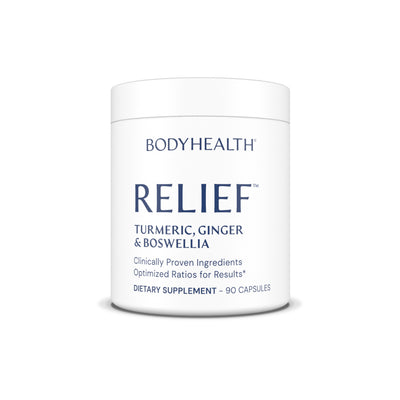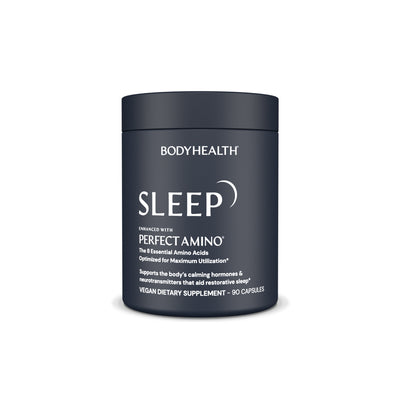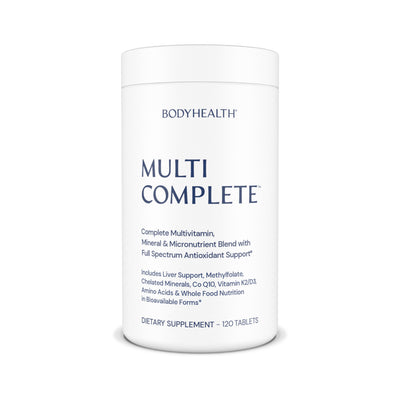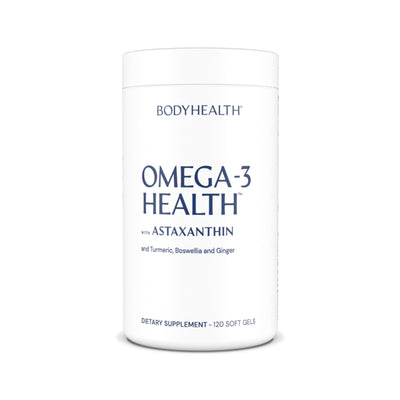Why is stress so high in our society?
by Dr. David Minkoff April 12, 2023 7 min read

I'd like to announce the brand new Stress Series, launching today!
Arguably, stress levels in our society have never been as high as they are right now.
And, while there has been a lot of upheaval in the last few years, there's more here than meets the eye.
Depression and anxiety have never been higher, physical stress in the form of inflammation, auto-immune disease, heart disease and cortisol levels have never been higher.
But this isn’t a recent occurrence. Stress levels have been rising for decades.
And, while some stress is emotional or mental, and some physical, it's all tied together, each aspect affecting the other, pushing each other to new heights.
How do we lower physical stress levels and inflammation?
How do we achieve a more even-keeled mood, more able to calmly face the challenges life presents?
How do we become the most alert and competent we can be mentally, while at the same time being able to relax when we need or want to, or when it's time to sleep?
Over the next few weeks we're going to cover this from every angle, see how it all fits together, and find out what you can do to lower stress levels in your life.
So let’s dive in!
WHAT IS STRESS?
Before we dive into why stress is so high, we first need to define it.
We all have problems we run into, things we’re responsible for or need to take care of, or people depending on us.
We have upsets, losses in life, from losing people, failing to reach goals, and upsets with others or the conditions around us.
These are pressures from life of one sort or another.
We also have physical pressures.
We have to get up, move our bodies (whether we want to or not sometimes), be active, think and problem-solve.
We can experience low energy, brain fog, inability to sleep or lack of sleep, hunger, inflammation, soreness or exhaustion after a workout or strenuous day, pain or pain points, lessened strength, etc.
These are all daily points of pressure. We can call them stress, but they would be better defined as stress points.
Because when we think about “being stressed out” we’re not thinking about just normal everyday actions or problems, or individual points of pressure.
We’re thinking about how many there are. We're thinking about all of them at once.
We’re thinking about feelings of overwhelm or “too much” to the point where it’s "hard to cope" or we "just can’t deal with it all."
So for our definition, we’ll be talking about this latter point: so many stress points combined, to the point where it's hard to cope or we just can’t cope.
Where it’s just too much.
But before we start getting stressed out thinking about what we're stressed out about, take a deep breath and realize one thing: I wouldn't be writing about this if I didn't have some thing or things that can help reduce it, significantly.
Now, these stress points are tied together. They affect one another.
And they increase one another, making each point worse.
Here's an example: Are we going through a break up? Or are we going through a break up and not sleeping and not eating?
Any breakup is stressful. But add in lack of sleep, or being hangry from lack of good food, and it can feel much worse and be harder to cope with.
Do we have trouble with our boss or do we have trouble with our boss and inflammation in our body, and lack of sleep so we can’t think as fast?
Each of these points alone may not be fun, but we can deal with them. But together, they double or triple the stress from each other point.
And, while maybe we can’t take away troubles with the boss, we can lower inflammation or improve sleep, or both, thus relieving some of the stress, and the boss becomes easier to deal with.
These are very simple examples, but it’s quite true.
We can’t take away all stress points — but we can take away many.
And the more we take away, the better we feel and the better we can deal with other stress points.
And you would be surprised at just how many stress points there are today compared to 5, 10, 20, 30 years ago.
And how many of them can be addressed to relieve overall stress levels so we’re more able to tackle the day.
HOW STRESSED ARE WE?
Our body is a fantastic contraption.
It has exact systems, responses and actions for pretty much anything that can occur.
But when things go wrong, because we’ve fed it the wrong foods, or taken in toxins, or ate a lot of sugar, or didn’t give it the rest it needed to recuperate and repair daily (lack of sleep builds up), it can start to be faulty in it’s operation:
- Our hormones go off (creating inflammation and bringing on depression and anxiety).
- Inflammation levels rise from not enough sleep or protein, leading to thousands of tiny micro-injuries that don't get a chance to heal.
- Inflammation rises from high amounts of sugar or processed sugars in our diet.
- Our blood vessels become inflamed from toxins or trans fats or processed sugars.
- Blue light from LED lights, fluorescent lights, phone screens, or EMFs from electrical conduits in our house or offices, or from cell towers, rev up our sympathetic nervous system — the fight or flight side of the nervous system that gets us ready for battle or emergency (whether we need to be or not).
- We develop hidden infections in our bodies that use up energy stores and protein, and lead to inflammation and low energy.
- We have injuries, large or microscopic, that never fully heal.
- Sensitivities to food or sound or light.
- Allergies.
- Physical conditions.
- Low amounts of protein needed for recovery.
- Low amounts of fats, or the wrong type of fats.
All of these things and more raise our physical stress levels.
And when our stress levels raise, for any reason, our body releases cortisol.
At the same time, any time we get stressed at work or home or reading the news, our body also releases cortisol.
This results in cortisol being continuously released. But when cortisol is being continuously released, it keeps our stress levels high.
A CORTISOL SOCIETY
Individually, one or two points of stress aren't that hard to deal with. But when there are many, all combined, that's when we get overwhelmed.
In todays world we have EMFs we never had before, toxins in our water, food and air, low protein and high sugar diets, drugs of all sorts which may be needed temporarily in cases but which all have their own side-effects, blue light, toxins in our clothes that enter through our pores, and much more.
All of these things add up to levels of cortisol in our body which could never have been reached even 70 years ago.
Add to this the stress points of life, of every kind, which also raise cortisol levels, and we begin to see why things are the way they are.
We have pressure coming in from every side! Well done for carrying despite it, it's no easy feat!
Cortisol is supposed to be released in small amounts, and not often daily. And it’s supposed to help lower inflammation and stress by addressing it right then.
But these high levels of cortisol do the opposite. Because when there is too much cortisol — it starts to create the effect it’s meant to address.
Inflammation raises, stress levels raise, physical troubles start, exhaustion sets in, anxiety and depression occur, etc.
This can lead to us feeling more stressed than we need to be or to feeling stressed when we don’t even have a reason to be, and a lessened ability to deal with the stress points in our life that we need to deal with on a day-to-day basis.
It leads to “can’t cope” and “too much” and “I need to get out of here.”
Okay. That seems grim.
But all is not lost.
Because we can remedy this.
ADDRESSING THE STRESS OF LIFE & THE BODY
The biggest factor here is not so much that there are stress points. There will always be some.
The biggest factor is how many of them we have, physically, mentally and emotionally, overloading our ability to cope with them.
Do you have to do your taxes, or do you have to do your taxes while you also have a migraine? You'll feel much more stressed if you have the latter.
So it's how many points we have all at once.
And the degree we feel we can’t cope with all of them is just an index of how many there are.
But the more stress points we can isolate and address, the lower our stress levels go.
And we can isolate and address them.
Over the next few weeks we’re going to cover points of stress from every angle (physical, emotional, mental), their causes, and their solutions.
So stay tuned. I think you’re going to like this.
And in the mean time, do this:
Make sure you’re getting plenty of protein in your diet and take your PerfectAmino.
Don’t let yourself go unfed, eat your breakfast.
Make sure you’re taking your vitamins, including vitamin B1, a very important vitamin when we’re stressed.
Take Relief to help lower cortisol levels naturally.
Make sure you’re getting plenty of sleep and, if not, read this article. (Don’t worry, we’ll dive into the subject of sleep even more coming up.)
And take a walk daily, even if for just 20 minutes. But when you walk, don’t stay stuck in your head, thinking. Look outwards. Look at the trees and people and buildings around you. Doing this for 20-30 minutes a day can dramatically lower stress levels.
I hope this helps.
Separately, if you haven't already, make sure you join our PerfectAmino VIP Group, where you can ask all your health & fitness questions and join a like-minded group of people, all working to better their health, fitness-levels, and overall lives naturally.
Read the next article in the seriesArticles by Health Topic
Get “The Search for the Perfect Protein”
by Dr. David Minkoff
Signup for the BodyHealth Newsletter and get a FREE digital copy of "The Search for the Perfect Protien" by Dr. David Minkoff and discover the key to weight loss, depression, fatigue, insomnia, and osteoporosis!
*These statements have not been evaluated by the Food and Drug Administration. These products are not intended to diagnose, treat, cure, or prevent any disease.



